Here’s what I read in May:

I wasn’t expecting a book called White House Pets to be particularly high literature, and this book by Margaret Truman (daughter of President Truman, so of course a former White House resident herself) really did meet my expectations. It was a pleasant enough way to spend a couple of hours, but I found the writing quite dull so it won’t be one I reread. In 16 chapters it covered many of the early presidents and their animal companions – the most recent were Kennedy and Johnson. 2.5/5.
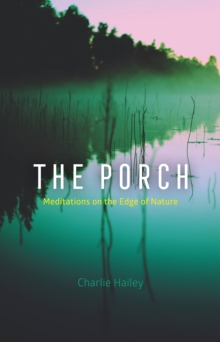
The Porch: Meditations on the Edge of Nature by Charlie Hailey is a book I’d never have thought to buy, but I got a copy through the LibraryThing Early Reviewers programme and my goodness what a gem! I absolutely loved it, and am so glad I got this chance!
Genre-wise it’s certainly a bit niche – it’s a mix of architecture (specifically about porches, unsurprisingly), philosophy, and nature, with an occasional touch of memoir as subtle seasoning. The prose is absolutely beautiful, and I found reading this book such an immersive experience, it was like I was sitting on his porch myself. The author is a professor of architecture, and the bulk of the book is based on the porch of his riverside cabin on the estuary of the Homosassa River in Florida. He writes of the liminality of the porch, both inside and outside, part of the house and separate from it, and how those different roles alter and clarify perspectives on the nature and life outside and its relation to the inner life of the house. It also looks at the precarity of the porch – particularly his riverside porch, as he’s seeing the effects of climate change in real time, and doesn’t expect the cabin to be around more than a few more decades, if that. He includes discussion of a number of other different porches as well, in literature, antiquity, and also some religious buildings – the section on the porch of the Memorial Chapel in the main Stockholm cemetery was fascinating. But the bits on the Homosassa porch were my favourite – the prose felt like the river water lapping on the shore, it was gorgeous. 5/5.
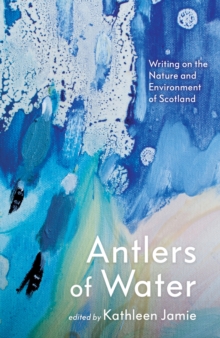
Antlers of Water: Writing on the Nature and Environment of Scotland is an anthology, edited by the wonderful poet and essayist Kathleen Jamie, of essays, poems and a couple of photo-essays designed to represent the contemporary writing on nature and environment in Scotland. Some of the authors were well-known names (including some of my favourites: Amy Liptrot, Malachy Tallack, Jim Crumley, Chitra Ramaswamy), others less known to me. Every piece was strong (although I must admit that I found it a bit harder to connect with the photo-essays), and it was the essays by Amanda Thomson (“Around Some Islands”) and Sally Huband (“Northern Raven”) that were my favourites. Topics impressively ranged from a pigeon on a city windowsill; watching a stag rut; sexism and the Lerwick Up Helly Aa festival; the reintroduction of sea eagles; sailing to an abandoned Hebridean island; wild swimming; and watching wasps build a nest in the garden, amongst others. A really excellent collection. 4.5/5.
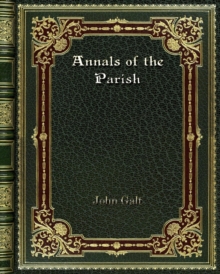
John Galt’s Annals of the Parish is a novel written in 1821 (I’m trying to read at least one “classic” a year). It is the first person account of the fictional presbyterian minister Micah Balwhidder, each chapter representing a year of his 51 years of ministry at the kirk in the fictional town of Dalmailing, Ayrshire. To start with I thought it was going to be a satire of the minister’s sense of self-importance, but actually once it settled down (or rather, once I got into the feel of it more) it is more a chronicle not only of a particular place at a particular time, but also the impact of world and local events. The parish sees its men go off to fight in the American Civil War, the parish sees prosperity and growth with the coming of a cotton mill, there are religious debates and admonitions, insights into the view of the role of women at the time, the effect of smuggling on the community, and much more. The account is liberally sprinkled with Scots dialect so wouldn’t necessarily be the easiest read (although most words can be gathered from the context), but overall I really enjoyed this. 4/5.
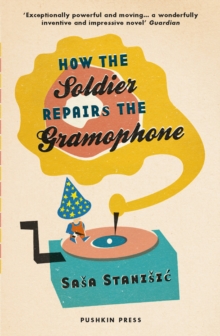
How the Soldier Repairs the Gramophone by Saša Stanišić, translated by Anthea Bell (who I know best as the translator of many Asterix books), is a strange but compelling novel about the Bosnian war. The main character, Aleks, like the author himself, flees the city of Višegrad as a teenager with his family and goes to Germany just after the start of the war. Some of the book looks at his family life and growing up before the war starts, some covers the start of the war before they leave, and some covers Aleks’ return to Višegrad years later to try to find out what’s happened to Asija, the girl he tried to save before they left but had lost touch with. It wasn’t always easy to work out whose point of view a particular bit of the narrative was (although I got there in the end), but that didn’t seem to matter. The slightly absurd situations actually reminded me of one of my favourite films, by Serbian film-maker Emir Kusturica, Black Cat, White Cat, even though that’s a dark comedy and there is very little about this book that could be called comic. I found the book moving, absurd, thought-provoking, a bit grim in parts, and it will stay with me for a long time. 4.5/5.
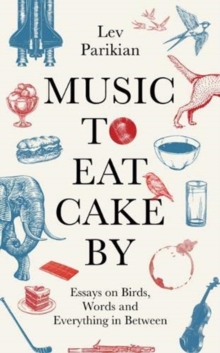
Lev Parikian’s Music to Eat Cake By is one of several books I’ve helped fund via the crowdfunding publisher unbound.com in the last couple of years. The short blurb is contained in its subtitle: “Essays on Birds, Words, and Everything in Between”; the longer story is that as well as people like me who just chipped in a bit for the book, he also set himself the challenge of writing essays based on topics suggested by supporters (who will have paid a specific amount for the privilege), and of including individual words suggested by still more supporters. On top of this, he also set himself the challenge of writing 40 essays, with the first starting at 4000 words, and then taking 100 words off the length of each subsequent essay until the 40th essay was just 100 words long.
I have followed the author on twitter for a while – he’s a conductor and also a nature buff (especially birds), and has a wonderful way with words. So I was keen to see how he did with this challenge. I enjoyed the book a lot (subjects ranged from cricket, music, nature, walking, sports commentators, to a random Welsh TV weatherman), but I couldn’t help feeling that the extra challenges bogged it down a bit – not so much the word length (although the shorter ones didn’t really work so well for me), but the individual word suggestions especially started to get on my nerves a bit as I went along. Some fitted in seamlessly, but others felt a bit shoehorned in, and it ended up feeling like one gimmick too many. As with any collection I enjoyed some essays more than others, but overall he is, as I’d suspected from his twitter, a fine and genial companion and I’d happily recommend the book for a fun read. 3.5/5. (but really 3.75).
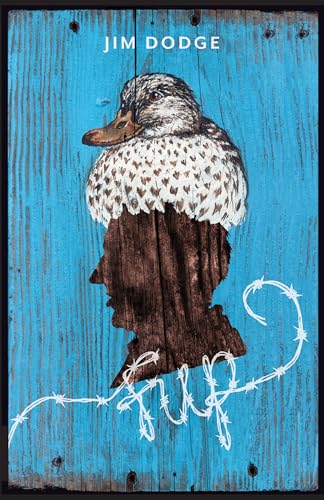
Jim Dodge’s Fup is a small (52 page) novella described in the blurb as “a wildly eccentric modern classic set in the coastal hills of Northern California … {a} whiskey-fueled tale…”, which I think is a very apt description. This is the first bit of the blurb on the back of the book:
Start with Granddaddy Jake Santee, a cantankerous, ninety-nine-year-old with a taste for gambling and whiskey; add Tiny, his gentle giant of a grandson, whose passion is for building well-crafted fences on land with no livestock; then add Fup, a twenty-pound mallard with an iron will and a fondness for hooch and romantic movies…
The story is a riot, and will provide fuel for anatidaephobics everywhere who think there’s something weird about ducks. 4/5.
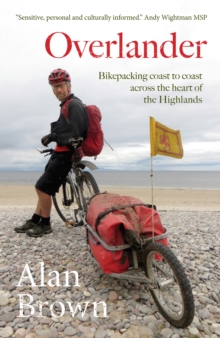
Alan Brown’s Overlander: Bikepacking coast to coast across the heart of the Highlands is his account of a week spent biking from Taynuilt on the west coast of Scotland over to Findhorn on the Moray Firth. It’s the type of trip I’d never do myself (far too unfit and fair-weather!) but I enjoyed it from my sofa! Camping or staying in bothies overnight, he writes about the joys of cycling, of being in the open air, of Scotland, but also considers thorny issues such as land ownership, history, use of the land for grouse and deer shooting, access laws, and the scourge of the Highlands aka the midge. A very interesting and evocative account. 4/5.
